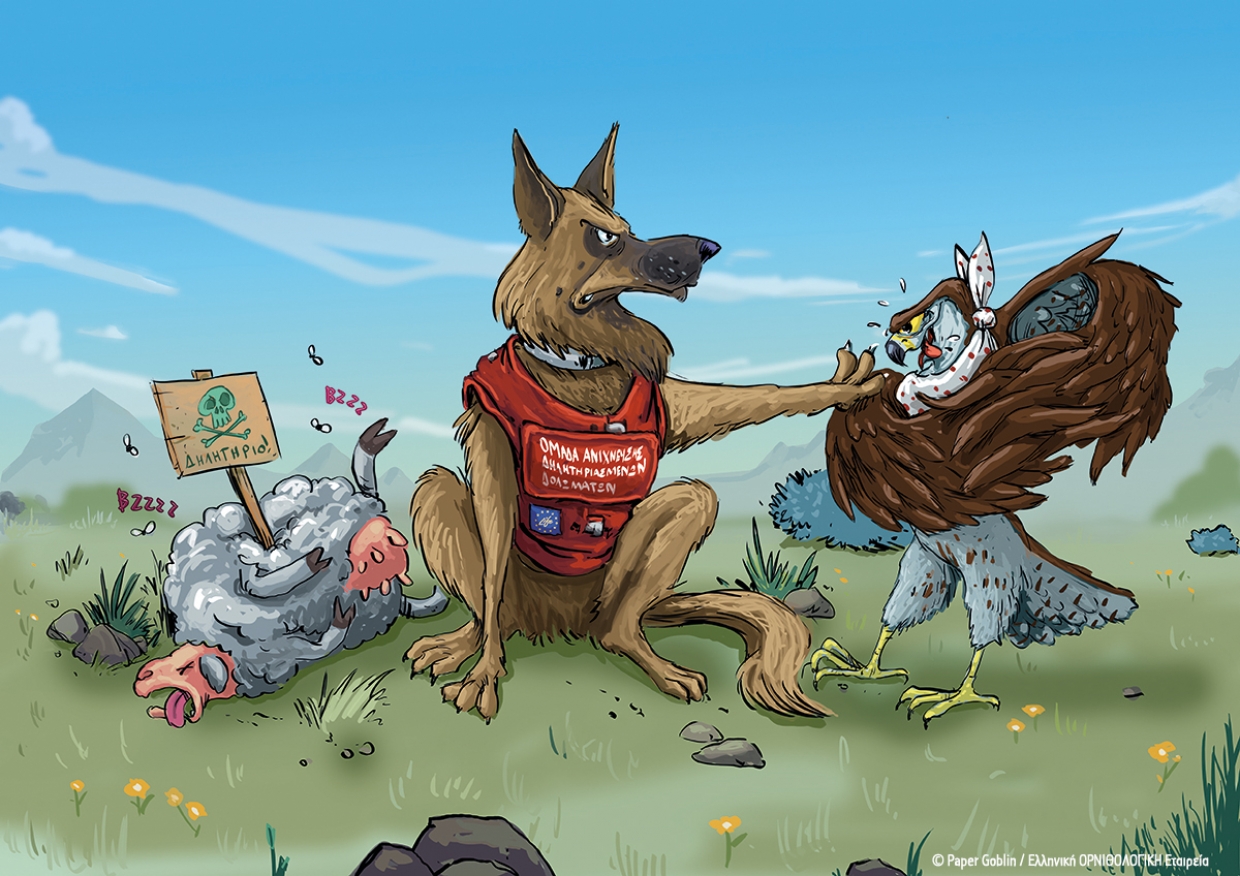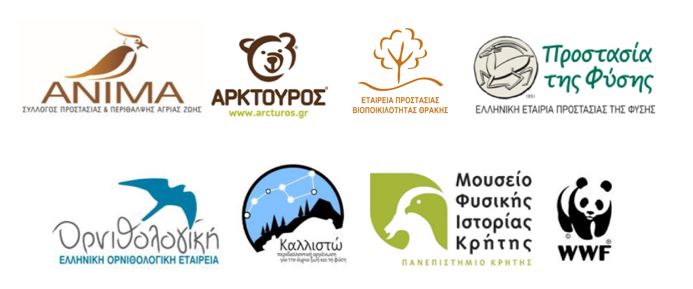Despite the fact that the use of poison baits has been declared illegal since 1993, unfortunately it remains a common practice in the Greek countryside. The perpetrators mainly target specific wildlife species (such as bears, wolves, boars, badgers, foxes, ferrets), either as an act of revenge or punishment against wild animals that may have caused damage to their agricultural production or their animal stock , or as a way to prevent damages considered as likely to occur. The recorded cases where the use of poison baits was linked to personal disputes and conflicts between livestock breeders and farmers in a specific area, are not few, with most common victims being working dogs (sheep dogs, hunting dogs, truffle dogs). Furthermore, taking into account that both poison baits themselves and poisoned animal corpses can be consumed by other scavengers such as the Griffon Vulture, the Egyptian Vulture, the Golden Eagle and the Cinereous Vulture., it is no surprise that these species also fall victims of this practice and are lead to death.
Remembering the most important milestones in the battle against the use of poison baits in Greece:
This year, marks 11 years since the worst poisoning incident in the country’s records occurred: on the 22nd February 2012, the Griffon Vulture colony and the Golden Eagle population in the Nestos straits were wiped out from a single poison bait. This tragic incident led to the "Working Group Against Poison Baits" coming together to fight this problem. Today, the Group consists of eight organizations: ANIMA, ARKTOUROS and the Hellenic Society for the Protection of Nature; the Hellenic Ornithological Society, the Society for the Protection of Biodiversity of Thrace and Kallisto; the Natural History Museum of Crete and WWF Hellas. This team collects and analyzes data on the extent and intensity of the use of poison baits in Greece and subsequently provides the Greek State with relevant technical reports, records and proposals.
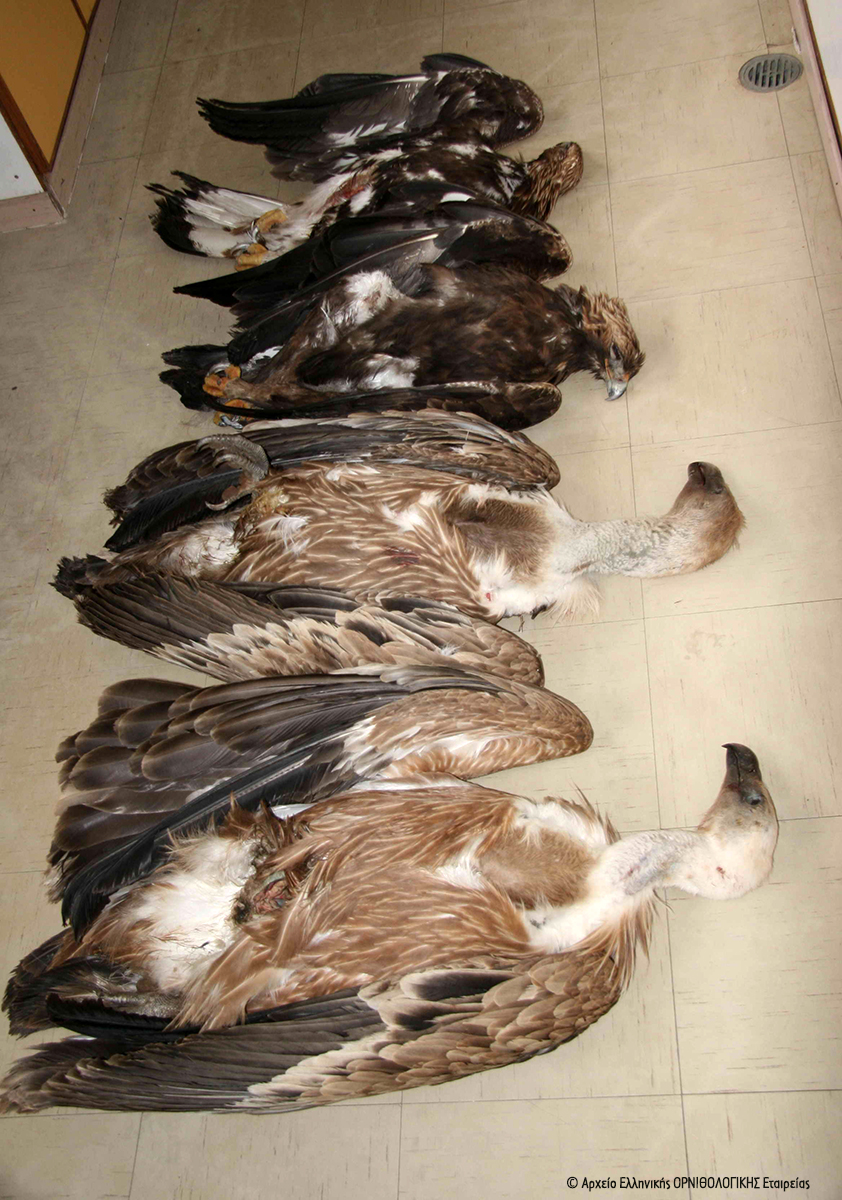
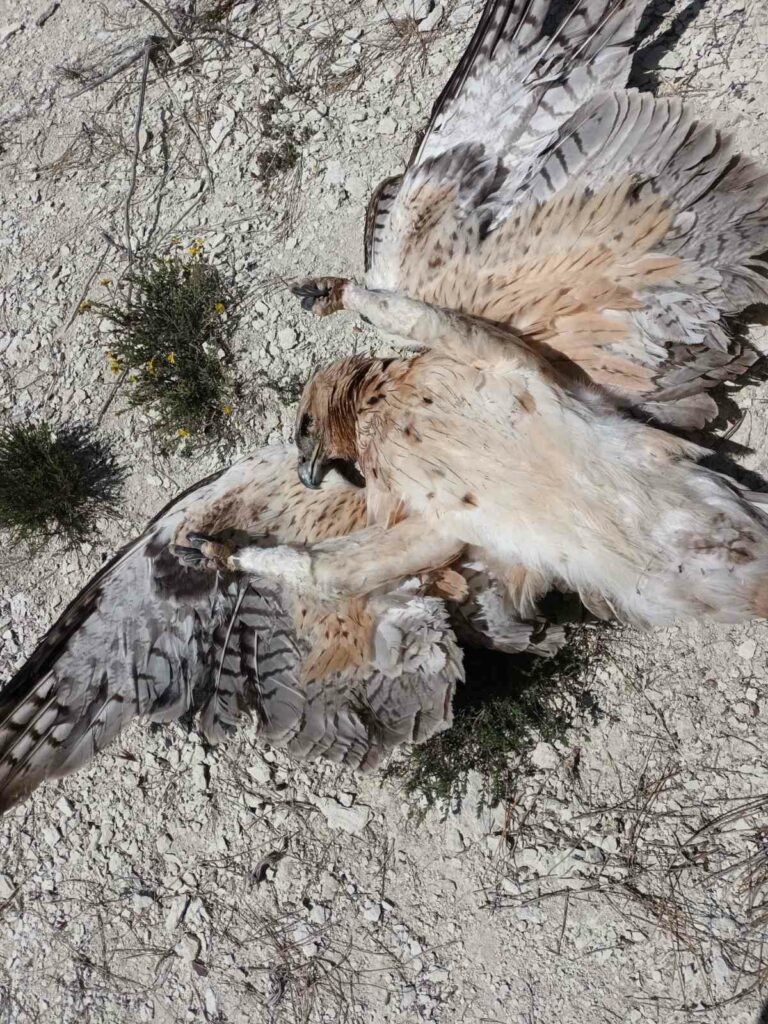
One year ago, in 2022, during a dedicated awareness event organized by the Working Group in collaboration with four European Projects (Balkan Detox LIFE, LIFE ARCPROM, Egyptian Vulture New LIFE and LIFE Bonelli eastMed), the Ministry of Environment and Energy and the Ministry of Agricultural Development and Food jointly declared February 22nd as ‘National Day of Action Against the Poison Baits’. The two Ministries, thus, placed under their auspices all the events that will be taking place every year, in the framework of this day, in collaboration with environmental organizations and society’s productive forces. The declaration of a National Day dedicated to this harmful practice aims to inform citizens about the devastating impact of the use and dispersal of poison baits in nature, not only on wildlife species, but also on breeding and working animals.
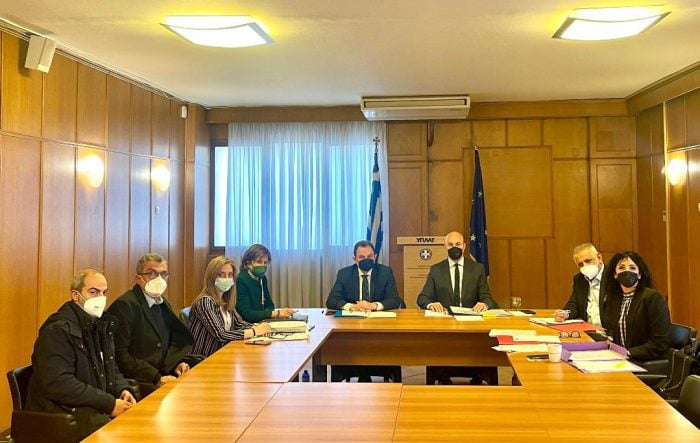
On 22nd of August 2022, with the collaboration of two more Ministries (Ministry of the Interior and Ministry of Citizen Protection), the long-awaited Joint Ministerial Decision entitled "Measures and procedures for the control of the illegal use of poison baits in wildlife species - Coordination of competent authorities and management bodies" was finally published in the Official Government Gazette. This Joint Ministerial Decision was necessary to clarify the responsibilities of the involved entities and state authorities, e.g. Forestry Administrations, the Police, Veterinary Services and the Department of the Veterinary Medical Center of Athens etc. A positive outcome of the Joint Ministerial Decision was the provision for the formation of the first state-owned Poison Bait Detection Units with specially trained dogs that can detect poison baits on time, before they can cause harm.
Despite these positive developments, it is important to note that the most crucial step in the fight against poison baits has not been taken yet, since the drafting and enforcement of the Local Action Plans that are necessary for monitoring if the Joint Ministerial Decision is properly enforced by the competent Forestry Services, remains to be implemented. We hope that the relevant Circular, sent by the Ministry of Environment and Energy=in January 2023, will expedite the process, as some of the species threatened by poison baits are literally on the brink of extinction.
On the occasion of the National Day of Action, all members of the Working Group will organize awareness actions for the public. In addition, the Poison Bait Detection Team of the LIFE Bonelli eastMed project will carry out awareness actions in schools in Rhodes and Heraklion of Crete.
Finally, the Working Group supports all the actions that will be carried out by the local Management Units of the Natural Environment and Climate Change Agency (N.E.C.C.A.). NECCA organizes information and awareness actions aimed at members of the educational community, land users (breeders, members of hunting associations, etc.) and local communities in Xanthi, Drama, Florina (Prespa lakes), as well as in the areas of Koroneia - Volvi lakes, Messolongi, Leonidio of Peloponnese and Ioannina.
This is a Joint Press Release issued by the members of the Working Group against Poison Baits:
-
ANIMA
ARKTOUROS
Hellenic Society for the Protection of Nature Hellenic ORNITHOLOGICAL Society
Society for the Protection of Biodiversity of Thrace
Kallisto
Natural History Museum of Crete
WWF Hellas



